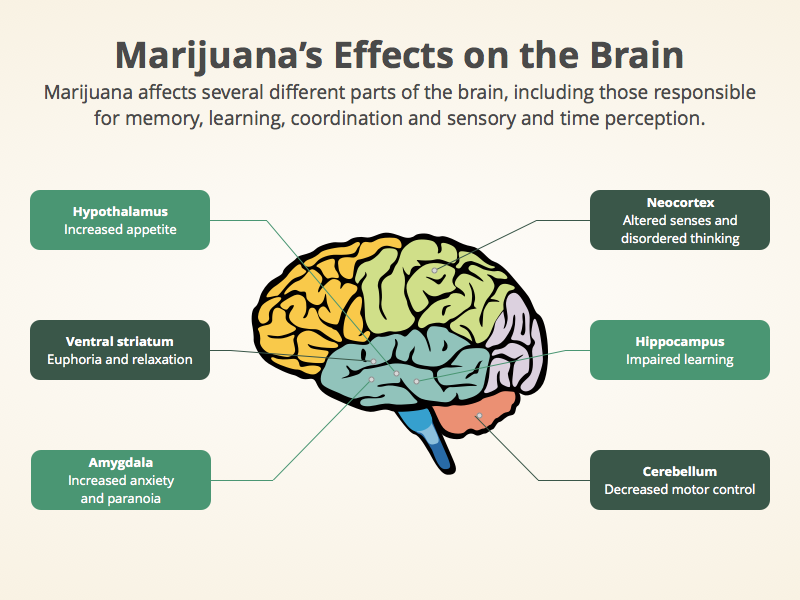Chapter 11: Adiction
In this Chapter
Marijuana
1This drug distorts perception and alters the sense of time, space, and self. In certain situations, marijuana can produce intense anxiety. Researchers have made some progress in uncovering the reasons for these responses.
2In radioactive tracing studies, scientists found that tetrahydrocannabinol (THC), the active ingredient in marijuana, binds to specific receptors called cannabinoid receptors, many of which coordinate movement. This may explain why people who drive after they smoke marijuana are impaired. The hippocampus, a structure involved with memory storage and learning, also contains many receptors for THC. This finding provides some insight into why heavy users or those intoxicated on marijuana have poor short-term memory and problems processing complex information.
3Scientists recently discovered that cannabinoid receptors normally bind to natural internal chemicals termed endocannabinoids one of which is called anandamide. A large effort is now being made to develop medications that target the endogenous or internal, cannabinoid system. The hope is that these medications will prove beneficial in treating a number of different brain disorders, including addiction, anxiety, and depression.
